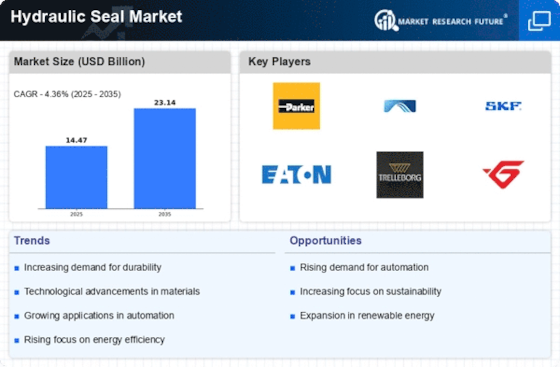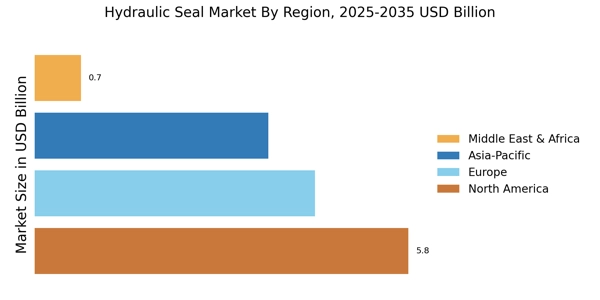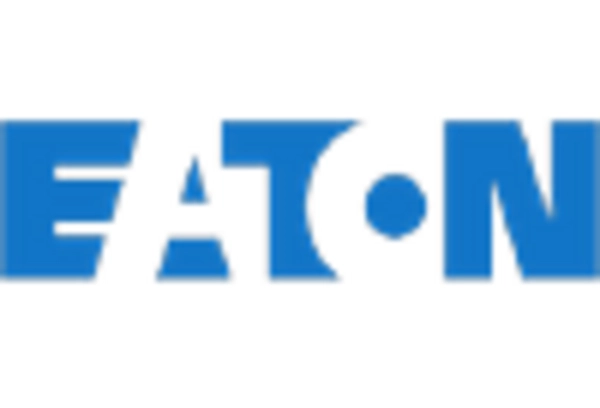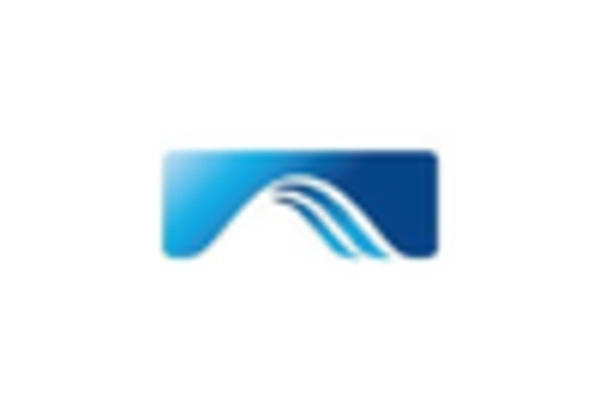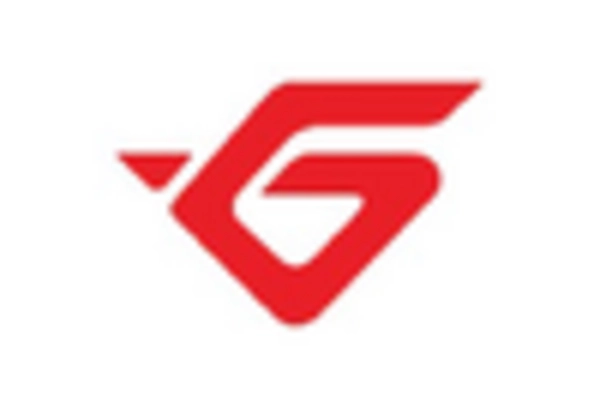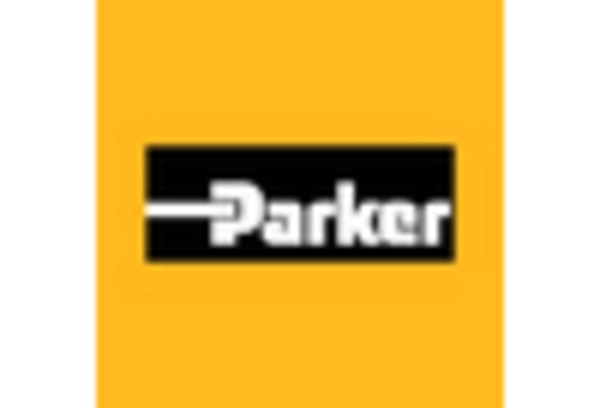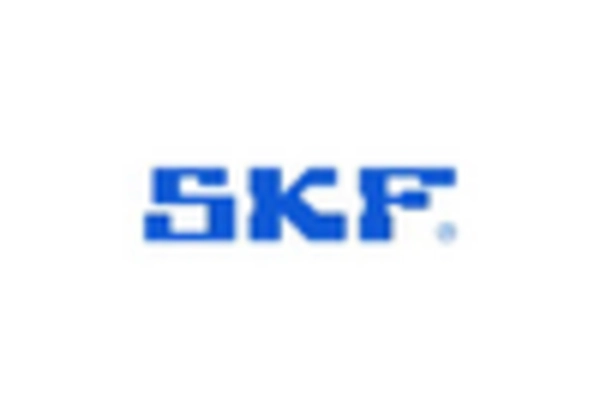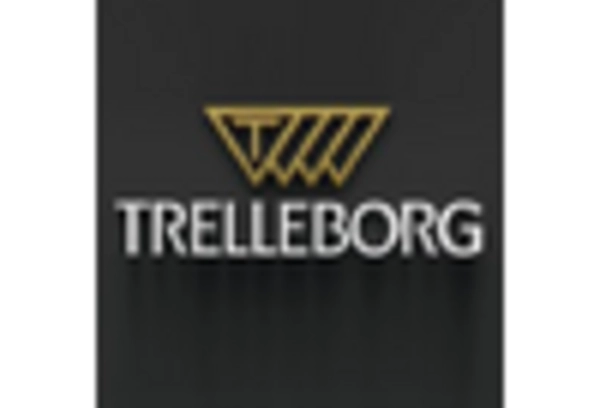Expansion of Automotive Sector
The automotive sector is a pivotal driver for the Hydraulic Seal Market, as vehicles increasingly rely on hydraulic systems for various functions. With the automotive industry projected to grow steadily, the demand for hydraulic seals is expected to rise correspondingly. Hydraulic seals are integral to braking systems, power steering, and suspension systems, ensuring optimal performance and safety. Recent statistics suggest that the automotive sector is likely to witness a growth rate of around 4% annually. This expansion is anticipated to bolster the Hydraulic Seal Market, as manufacturers innovate to produce seals that can withstand higher pressures and temperatures, thereby enhancing vehicle reliability and performance.
Growth in Renewable Energy Sector
The renewable energy sector is emerging as a significant driver for the Hydraulic Seal Market. As the world shifts towards sustainable energy sources, hydraulic systems are increasingly utilized in wind turbines and solar energy applications. These systems require high-performance hydraulic seals to ensure efficiency and reliability. The renewable energy market is projected to expand rapidly, with investments in wind and solar energy expected to increase substantially. This growth is likely to create new opportunities for the Hydraulic Seal Market, as manufacturers develop specialized seals that can withstand the unique challenges posed by renewable energy applications, such as extreme weather conditions and varying operational pressures.
Rising Demand in Construction Sector
The Hydraulic Seal Market is experiencing a notable surge in demand, particularly driven by the construction sector. As infrastructure projects expand, the need for reliable hydraulic systems becomes paramount. Hydraulic seals play a crucial role in ensuring the efficiency and longevity of these systems. Recent data indicates that the construction industry is projected to grow at a compound annual growth rate of approximately 5.5% over the next few years. This growth is likely to translate into increased sales of hydraulic seals, as they are essential components in various construction machinery, including excavators and cranes. The Hydraulic Seal Market, therefore, stands to benefit significantly from this trend, as manufacturers strive to meet the rising demand for durable and high-performance sealing solutions.
Increased Focus on Equipment Maintenance
An increased focus on equipment maintenance is driving growth in the Hydraulic Seal Market. Industries are recognizing the importance of regular maintenance to prevent equipment failure and extend the lifespan of machinery. Hydraulic seals are critical components that require regular inspection and replacement to ensure optimal performance. As companies adopt proactive maintenance strategies, the demand for high-quality hydraulic seals is likely to rise. Recent trends indicate that industries are investing more in maintenance programs, which could lead to a substantial increase in the sales of hydraulic seals. This shift towards maintenance-oriented practices is expected to positively impact the Hydraulic Seal Market, as manufacturers respond to the growing need for reliable sealing solutions.
Technological Innovations in Seal Design
Technological advancements in seal design are significantly influencing the Hydraulic Seal Market. Innovations such as the development of advanced materials and manufacturing techniques are enhancing the performance and durability of hydraulic seals. For instance, the introduction of composite materials has improved resistance to wear and tear, thereby extending the lifespan of seals in demanding applications. The market is witnessing a shift towards seals that can operate effectively under extreme conditions, which is likely to attract a broader customer base. As companies invest in research and development, the Hydraulic Seal Market is poised for growth, with new products that meet the evolving needs of various sectors, including aerospace and industrial machinery.


